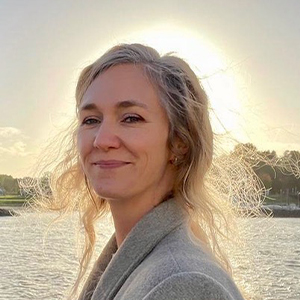
Julie Krans
Julie Krans is an assistant professor in clinical psychology and associate director of the Behavioural Science Ins0tute at the Radboud University, the Netherlands. She is also a senior researcher at Pro Persona Overwaal centre for anxiety, OCD, and PTSD. Her research focuses on imagery rescrip0ng and schema therapy for chronic anxiety, OCD and PTSD. She is a trained CBT therapist. Level of ISST membership: None, researcher in the field of schema therapy.
Fine-tuning imagery rescripting: fostering and making use of the healthy adult mode
Co-Presented with Remco van der Wijngaart
Imagery rescripting is nowadays regarded as an evidence-based technique for treating different disorders, such as PTSD, social anxiety disorder, and personality disorders (Morina et al., 2017, Kippe et al., 2023; Kroener et al., 2023). With imagery rescripting we aim to generate corrective emotional experiences in aversive memories/images in order to change negative encapsulated core beliefs. These corrective emotional experiences foster the Healthy Adult Mode, which is one of the main therapeutic goals in schema therapy. Conversely, the Healthy Adult Mode is also an important element that can be used to empower and fine-tune in imagery rescripting sessions. First, a powerful mental image of the Healthy Adult can be a helpful tool for when the patient is ready to start rescripting themselves. Second, in future oriented imagery, the Healthy Adult mode can be drawn upon to help prepare for schema activating events that may still occur, as future oriented imagery has been shown to motivate behavior as well (Libby et al., 2007). However, there are challenges for each use of the Healthy Adult mode in imagery rescripting and we will tackle them in this workshop. For example, it is not always easy to form a powerful mental representation of the Healthy Adult. Second, there are challenges when the patient starts rescripting themselves in which the Healthy Adult mode can play a role. Third, future oriented imagery at the end of treatment has its own specific challenges, as we assume that the client more and more ‘becomes’ a Healthy Adult overall. Should we ask the patient to keep an observer perspective, or should we ask the patient be the Healthy Adult? Should we focus on emotional experiences or behavioral change? Lastly, sometimes therapists themselves can get triggered during sessions too. Having an own empowering Healthy Adult image may benefit your clinical skills!

